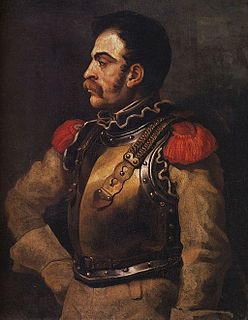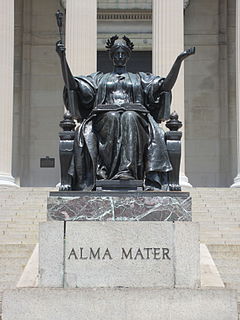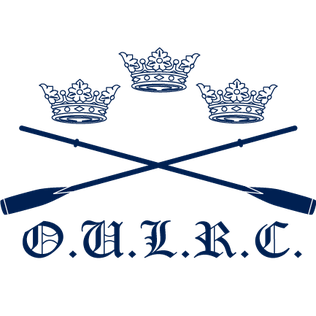Related Research Articles

The English language was introduced to the Americas by British colonisation, beginning in the late 16th and early 17th centuries. The language also spread to numerous other parts of the world as a result of British trade and colonisation and the spread of the former British Empire, which, by 1921, included 470–570 million people, about a quarter of the world's population. Written forms of British and American English as found in newspapers and textbooks vary little in their essential features, with only occasional noticeable differences.

From the time of Plato through the Middle Ages, the quadrivium was a grouping of four subjects or arts—arithmetic, geometry, music, and astronomy—that formed a second curricular stage following preparatory work in the trivium, consisting of grammar, logic, and rhetoric. Together, the trivium and the quadrivium comprised the seven liberal arts, and formed the basis of a liberal arts education in Western society until gradually displaced as a curricular structure by the studia humanitas and its later offshoots, beginning with Petrarch in the 14th century. The seven classical arts were considered "thinking skills" and were distinguished from practical arts, such as medicine and architecture.
Theology is the systematic study of the nature of the divine and, more broadly, of religious belief. It is taught as an academic discipline, typically in universities and seminaries. It occupies itself with the unique content of analyzing the supernatural, but also deals with religious epistemology, asks and seeks to answer the question of revelation. Revelation pertains to the acceptance of God, gods, or deities, as not only transcendent or above the natural world, but also willing and able to interact with the natural world and, in particular, to reveal themselves to humankind. While theology has turned into a secular field, religious adherents still consider theology to be a discipline that helps them live and understand concepts such as life and love and that helps them lead lives of obedience to the deities they follow or worship.

An antiquarian or antiquary is an aficionado or student of antiquities or things of the past. More specifically, the term is used for those who study history with particular attention to ancient artifacts, archaeological and historic sites, or historic archives and manuscripts. The essence of antiquarianism is a focus on the empirical evidence of the past, and is perhaps best encapsulated in the motto adopted by the 18th-century antiquary Sir Richard Colt Hoare, "We speak from facts, not theory."

Singing is the act of creating musical sounds with the voice. A person who sings is called a singer or vocalist. Singers perform music that can be sung with or without accompaniment by musical instruments. Singing is often done in an ensemble of musicians, such as a choir. Singers may perform as soloists or accompanied by anything from a single instrument up to a symphony orchestra or big band. Different singing styles include art music such as opera and Chinese opera, Indian music, Japanese music, and religious music styles such as gospel, traditional music styles, world music, jazz, blues, ghazal, and popular music styles such as pop, rock, and electronic dance music.

A sarcophagus is a box-like funeral receptacle for a corpse, most commonly carved in stone, and usually displayed above ground, though it may also be buried. The word sarcophagus comes from the Greek σάρξsarx meaning "flesh", and φαγεῖνphagein meaning "to eat"; hence sarcophagus means "flesh-eating", from the phrase lithos sarkophagos, "flesh-eating stone". The word also came to refer to a particular kind of limestone that was thought to rapidly facilitate the decomposition of the flesh of corpses contained within it due to the chemical properties of the limestone itself.
Jus commune or ius commune is Latin for "common law" in certain jurisdictions. It is often used by civil law jurists to refer to those aspects of the civil law system's invariant legal principles, sometimes called "the law of the land" in English law. While the ius commune was a secure point of reference in continental European legal systems, in England it was not a point of reference at all. The phrase "the common law of the civil law systems" means those underlying laws that create a distinct legal system and are common to all its elements.

A cuirass is a piece of armour that is formed of a single or multiple pieces of metal or other rigid material which covers the torso. The word originates from the original material; leather, from the French cuirace and Latin word coriacea. The use of the term "cuirass" generally refers to both the chest plate and the back piece together. Whereas a chest plate only protects the front and a back plate only protects the back, a cuirass protects both the front and the back.

Alma mater is an allegorical Latin phrase currently used to identify a school, college or university that one formerly attended or/and graduated from.
Circuit courts are court systems in several common law jurisdictions. The core concept of circuit courts requires judges to travel to different locales to ensure wide visibility and understanding of cases in a region. More generally, the term may also refer to a court that merely holds trials and other proceedings at a series of multiple locations in some kind of rotation.
Globalism refers to various patterns of meaning beyond the merely international. It is used by political scientists, such as Joseph Nye, to describe "attempts to understand all the interconnections of the modern world—and to highlight patterns that underlie them." While primarily associated with world-systems, it can be used to describe other global trends. The concept of globalism is also classically used to distinguish the ideologies of globalization from the processes of globalization. In this sense, globalism is to globalization what nationalism is to nationality.
Ethnarch is a term that refers generally to political leadership over a common ethnic group or homogeneous kingdom. The word is derived from the Greek words ἔθνος and ἄρχων. Strong's Concordance gives the definition of 'ethnarch' as "the governor of a district."
A birth name is the name of a person given upon birth. The term may be applied to the surname, the given name, or the entire name. Where births are required to be officially registered, the entire name entered onto a birth certificate or birth register may by that fact alone become the person's legal name.

An ivory tower is a metaphorical place—or an atmosphere—where people are happily cut off from the rest of the world in favor of their own pursuits, usually mental and esoteric ones. From the 19th century, it has been used to designate an environment of intellectual pursuit disconnected from the practical concerns of everyday life. Most contemporary uses of the term refer to academia or the college and university systems in many countries.
Dominus is the Latin word for master or owner. Dominus saw use as a Roman imperial title. It was also the Latin title of the feudal, superior and mesne, lords, and an ecclesiastical and academic title. The ecclesiastical title was rendered through the French sieure in English as sir, making it a common prefix for parsons before the Reformation, as in Sir Hugh Evans in Shakespeare's Merry Wives of Windsor. Its shortened form Dom remains used as a prefix of honor for ecclesiastics of the Catholic Church, and especially for members of the Benedictine and other religious orders. The title was formerly also used as is, Dominus, for a Bachelor of Arts.

The first use of "light blue" as a color term in English is in the year 1915.
The Registrary is the senior administrative officer of the University of Cambridge. The term is unique to Cambridge, and uses an archaic spelling. Most universities in the United Kingdom and in North America have administrative offices entitled "registrar" or "the registry", although typically with substantially less official responsibility than the Cambridge post.

The Cambridge University Reporter, founded in 1870, is the official journal of record of the University of Cambridge, England.
Cuppers are intercollegiate sporting competitions at the Universities of Oxford and Cambridge. The term comes from the word "cup" and is an example of the Oxford "-er". Each sport holds only one Cuppers competition each year, which is open to all colleges. Most Cuppers competitions use the single elimination system. The main exception is that rowing is organised into The Bumps as opposed to a Cuppers-style tournament.

Oxford University Lightweight Rowing Club (OULRC) is the university rowing club for lightweight men at the University of Oxford which selects crews to race against Cambridge University Boat Club in the Lightweight Boat Races at the end of Hilary term. These races are usually held in late March each year.
References
- 1 2 Jan Morris, Oxford. Oxford University Press, 1987. ISBN 0-19-282065-6. Page 41.